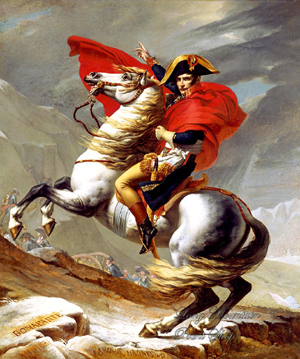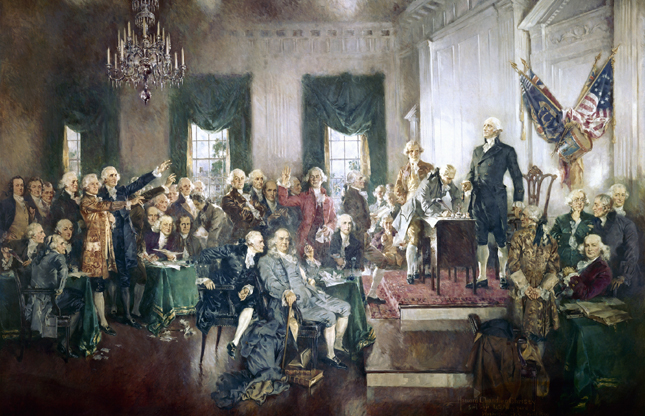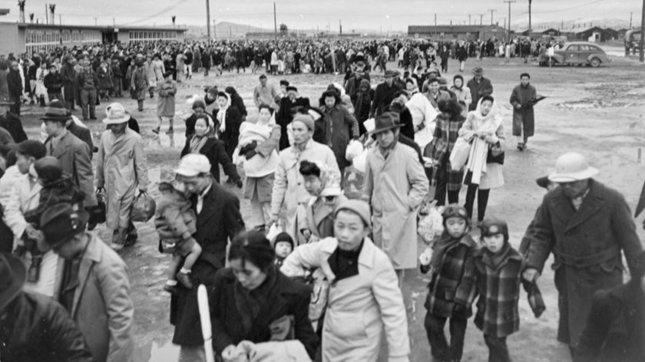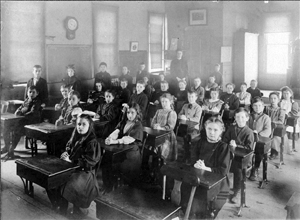| Types of Government
The United States has established a representative democracy
that serves as a model for government and inspires people around the world.
Students in China in 1989 marched for “government of the people, by the
people, and for the people.” Yet other forms of government outnumber true
democracies. Over the centuries, people have organized their governments
in many different ways. In Saudi Arabia, for example, the ruling
royal family controls the government and its resources. Family members
choose the king from among themselves. Thousands of miles away, in
Burkina Faso in Africa, a small group of wealthy landowners and military
officers governs that country. In Sweden the people elect the Riksdag,
the national legislature, which in turn selects the prime minister to carry
out the laws.
Major Types of Government
Governments can be classified in many ways. The
most time-honored system comes from the ideas of the ancient Greek philosopher
Aristotle. It is based on a key question: Who governs the state?
Under this system of classification, all governments belong to one of three
major groups: (1) autocracy—rule by one person; (2) oligarchy—rule by a
few persons; or (3) democracy—rule by many persons.
Autocracy
| Any system of government in which the power and authority
to rule are in the hands of a single individual is an autocracy.
This is the oldest and one of the most common forms of government.
Historically, most autocrats have maintained their positions of authority
by inheritance or the ruthless use of military or police power. Several
forms of autocracy exist. One is an absolute or totalitarian dictatorship.
In a totalitarian dictatorship, the ideas of a single leader or
group of leaders are glorified. The government seeks to control all
aspects of social and economic life. Examples of totalitarian dictatorship
include Adolf Hitler’s government in Nazi Germany (from 1933 to 1945),
Benito Mussolini’s rule in Italy (from 1922 to 1943), and Joseph Stalin’s
regime in the Soviet Union (from 1924 to 1953). In such dictatorships,
government is not responsible to the people, and the people lack the power
to limit their rulers. |
|

Napoleon Bonaparte, especially
as emperor, became an absolute dictator in his rule over what is known
as the French Empire. |
Monarchy is another form of autocratic government.
In a monarchy a king, queen, or emperor exercises the supreme powers of
government. Monarchs usually inherit their positions. Absolute
monarchs have complete and unlimited power to rule their people.
The king of Saudi Arabia, for example, is such an absolute monarch.
Absolute
monarchs are rare today, but from the 1400s to the 1700s, kings or
queens with absolute powers ruled most of Western Europe.
Today some countries, such as Great Britain, Sweden, Japan,
and the Netherlands, have constitutional monarchs. These monarchs
share governmental powers with elected legislatures or serve mainly as
the ceremonial leaders of their governments.
Oligarchy
An oligarchy is any system of government in which
a small group holds power. The group derives its power from wealth,
military power, social position, or a combination of these elements.
Sometimes religion is the source of power. Today the governments
of Communist countries, such as China, are mostly oligarchies. In
such countries, leaders in the Communist Party and the armed forces control
the government.
Both dictatorships and oligarchies sometimes claim they
rule for the people. Such governments may try to give the appearance
of control by the people. For example, they might hold elections,
but offer only one candidate, or control the election results in other
ways. Such governments may also have some type of legislature or
national assembly elected by or representing the people.
These legislatures, however, approve only policies and
decisions already made by the leaders. As in a dictatorship, oligarchies
usually suppress all political opposition—sometimes ruthlessly.
Democracy
A democracy is any system of government in which
rule is by the people. The term democracy comes from the Greek demos
(meaning “the people”) and kratia (meaning “rule”). The ancient Greeks
used the word democracy to mean government by the many in contrast to government
by the few. Pericles, a great leader of ancient Athens, declared,
“Our constitution is named a democracy because it is in the hands not of
the few, but of the many.”

The key idea of democracy is that the people hold sovereign
power. Abraham Lincoln captured this spirit best when he described
democracy as “government of the people, by the people, and for the people.”
Democracy may take one of two forms. In a direct
democracy, the people govern themselves by voting on issues individually
as citizens. Direct democracy exists only in very small societies
where citizens can actually meet regularly to discuss and decide key issues
and problems. Direct democracy is still found in some New England
town meetings and in some of the smaller states, called cantons, of Switzerland.
No country today, however, has a government based on direct democracy.
In an indirect or representative democracy, the people
elect representatives and give them the responsibility and power to make
laws and conduct government. An assembly of the people’s representatives
may be called a council, a legislature, a congress, or a parliament.
Representative democracy is practiced in cities, states, provinces, and
countries where the population is too large to meet regularly in one place.
It is the most efficient way to ensure that the rights of individual citizens,
who are part of a large group, are represented.
In a republic, voters are the source of the government’s
authority. Elected representatives who are responsible to the people
exercise that power. As Benjamin Franklin was leaving the Constitutional
Convention in Philadelphia in 1787, a woman approached him and asked, “What
kind of government have you given us, Dr. Franklin? A republic or
a monarchy?” Franklin answered, “A republic, Madam, if you can keep it.”
Franklin’s response indicated that the Founders preferred
a republic over a monarchy but that a republic requires citizen participation.
For most Americans today, the terms representative democracy,
republic,
and constitutional republic mean the same thing: a system
of limited government where the people are the ultimate source of governmental
authority. It should be understood, however, that throughout the
world not every democracy is a republic. Great Britain, for example,
is a democracy but not a republic because it has a constitutional monarch
as its head of state.
What are the major types of government?
Characteristics of Democracy
Today some nations of the world misuse the word democracy.
Many countries call their governments “democratic” or “republican” whether
they really are or not. The government of North Korea, for example,
is an oligarchy, because a small number of Communist Party leaders run
the government. Yet their country is called the Democratic People’s
Republic of Korea. A true democratic government, as opposed to one
that only uses the term democratic in its name, has characteristics that
distinguish it from other forms of government.
Individual Liberty
No individual, of course, can be completely free to do
absolutely anything he or she wants. That would result in chaos.
Rather, democracy requires that all people be as free as possible to develop
their own capacities. Government in a democracy works to promote
the kind of equality in which all people have an equal opportunity to develop
their talents to the fullest extent possible.
Majority Rule with Minority Rights
Democracy also requires that government decisions be based
on majority rule. In a democracy people usually accept decisions
made by the majority of voters in a free election. Representative
democracy means that laws enacted in the legislatures represent the will
of the majority of lawmakers. Because these lawmakers are elected
by the people, the laws are accepted by the people.
At the same time, the American concept of democracy includes
a concern about the possible tyranny of the majority. The Constitution
helps ensure that the rights of the minority will be protected.
Respect for minority rights can be difficult to maintain,
especially when society is under great stress. For example, during
World War II, the government imprisoned more than 100,000 Japanese Americans
in relocation camps because it feared they would be disloyal. The
relocation program caused severe hardships for many Japanese Americans
and deprived them of their basic liberties. Even so, the program
was upheld by the Supreme Court in 1944 in Korematsu v. United States
1 and in two similar cases.
Endo v. United States
The Supreme Court, however, upheld the rights of Mitsuye
Endo in 1944. A native-born citizen, Endo was fired from a California
state job in 1942 and sent to a relocation center. Her lawyer challenged
the War Relocation board’s right to detain a loyal American citizen.
The case finally reached the Supreme Court in 1944.
On the day after the exclusionary order was revoked by
the military commander, the Court ruled that Mitsuye Endo could no longer
be held in custody. Justice Frank Murphy wrote:
“Detention in Relocation Centers of people
of Japanese ancestry regardless of loyalty is not only unauthorized by
Congress or the Executive, but is another example of the unconstitutional
resort to racism inherent in the entire evacuation program. ... Racial
discrimination of this nature bears no reasonable relation to military
necessity and is utterly foreign to the ideals and traditions of American
people.”
—Justice Frank Murphy, 1944

In recent years the wartime relocation program has been
criticized as a denial of individual rights and as proof that tyranny can
occur in even the most democratic societies. In 1988 Congress acknowledged
the “grave injustice” of the relocation experience and offered payments
of $20,000 to those Japanese Americans still living who had been relocated.
Free Elections
As we have seen, democratic governments receive their
legitimacy by the consent of the governed. The authority to create
and run the government rests with the people. All genuine democracies
have free and open elections. Free elections give people the chance
to choose their leaders and to voice their opinions on various issues.
Free elections also help ensure that public officials pay attention to
the wishes of the people.
In a democracy several characteristics mark free elections.
First, everyone’s vote carries the same weight—a principle often expressed
in the phrase “one person, one vote.” Second, all candidates have
the right to express their views freely, giving voters access to competing
ideas. Third, citizens are free to help candidates or support issues.
Fourth, the legal requirements for voting, such as age, residence, and
citizenship, are kept to a minimum. Thus, racial, ethnic, religious,
or other discriminatory tests cannot be used to restrict voting.
Fifth, citizens may vote freely by secret ballot, without coercion or fear
of punishment for their voting decisions.
Competing Political Parties
Political parties are an important element of democratic
government. A political party is a group of individuals with
broad common interests who organize to nominate candidates for office,
win elections, conduct government, and determine public policy. In
the United States, while any number of political parties may compete, a
two-party system in which the Republicans and the Democrats have become
the major political parties has developed. Rival parties help make
elections meaningful.
They give voters a choice among candidates. They
also help simplify and focus attention on key issues for voters.
Finally, in democratic countries, the political party or parties that are
out of power serve as a “loyal opposition.” That is, by criticizing the
policies and actions of the party in power, they can help make those in
power more responsible to the people.
What are the characteristics
of a democracy?
The Soil of Democracy
Historically, few nations have practiced democracy.
One reason may be that real democracy seems to require a special environment.
Democratic government is more likely to succeed in countries which to some
degree meet five general criteria that reflect the quality of life of citizens.
Active Citizen Participation
Democracy requires citizens who are willing to participate
in civic life. Countries in which citizens are able to inform themselves
about issues, to vote in elections, to serve on juries, to work for candidates,
and to run for government office are more likely to maintain a strong democracy
than countries where citizens do not participate fully in their government.
A Favorable Economy
Democracy succeeds more in countries that do not have
extremes of wealth and poverty and that have a large middle class.
The opportunity to control one’s economic decisions provides a base for
making independent political decisions. In the United States this
concept is called free enterprise. If people do not have control
of their economic lives, they will not likely be free to make political
decisions.
Countries with stable, growing economies seem better able
to support democratic government. In the past, autocrats who promised
citizens jobs and food have toppled many democratic governments during
times of severe economic depression. People who are out of work or
unable to feed their families often become more concerned about security
than about voting or exercising other political rights.
Widespread Education
| Democracy is more likely to succeed in countries with
an educated public. The debate over public education in America was
settled in the 1830s. For example, in 1835 Pennsylvania voted to
fund public schools. Thaddeus Stevens, speaking to the Pennsylvania
state legislature in favor of the funding legislation, said: |
|
 |
“If an elective republic is to endure for
any great length of time, every elector must have sufficient information...
to direct wisely the legislature, the ambassadors, and the executive of
the nation. ... [I]t is the duty of government to see that the means
of information be diffused to every citizen.”
—Thaddeus Stevens, April 1835
Strong Civil Society
Democracy is not possible without a civil society,
a complex network of voluntary associations, economic groups, religious
organizations, and many other kinds of groups that exist independently
of government. The United States has thousands of such organizations—the
Red Cross, the Humane Society, the Sierra Club, the National Rifle Association,
your local church and newspaper, labor unions, and business groups.
These organizations give citizens a way to make their views known to government
officials and the general public. They also give citizens a means
to take responsibility for protecting their rights, and they give everyone
a chance to learn about democracy by participating in it.
A Social Consensus
Democracy also prospers where most people accept democratic
values such as individual liberty and equality for all. Such countries
are said to have a social consensus. There also must be general
agreement about the purpose and limits of government.
History shows that conditions in the American colonies
favored the growth of democracy. Many individuals had an opportunity
to get ahead economically. The American colonists were among the
most educated people of the world at the time. Thomas Jefferson remarked
that Americans
“... seem to have deposited the monarchial
and taken up the republican government with as much ease as... [they] would
throwing off an old and putting on a new suit of clothes.”
—Thomas Jefferson, 1776
The English heritage provided a consensus of political
and social values. In time, the benefits of democracy would extend
to all Americans.
What are the requirements of
a democratic society? |



